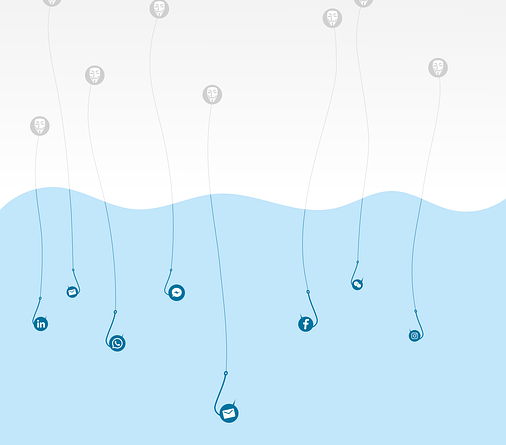
Imagine this: you’re walking down a busy city street, surrounded by strangers going about their day. Suddenly, you feel a hand reach into your pocket, attempting to snatch your wallet. You quickly react, tightening your grip and protecting your valuable personal information from falling into the wrong hands.
Now, shift this scenario to the digital world. Every day, your online identity is at risk of being stolen, just like that wallet. With the increasing prevalence of cybercrime, it is essential to take proactive steps to protect your identity online.
In this article, we will provide you with essential tips for personal information security, empowering you to safeguard your identity in the digital realm. From strengthening your password security to detecting and avoiding phishing scams, we will equip you with the knowledge and tools necessary to navigate the online world safely.
So, let’s dive in and ensure that your personal information remains secure in the vast landscape of the internet.
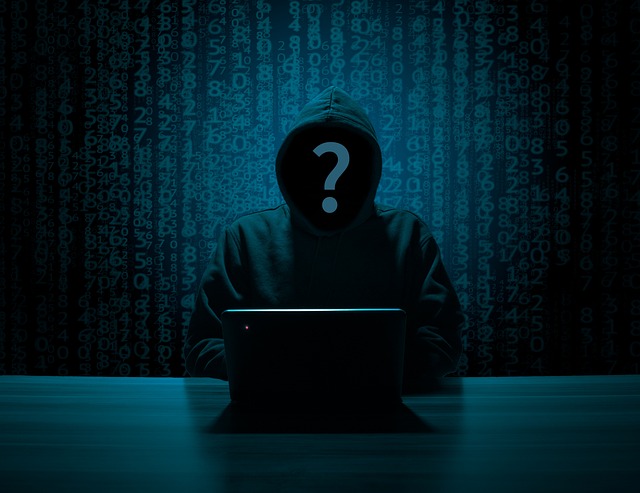
Key Takeaways
- Strong passwords, cautious sharing, and monitoring accounts are essential steps to protect your online identity and personal information.
- Being aware of common online risks and vulnerabilities, such as phishing and data breaches, can help you avoid falling victim to identity theft.
- Implementing security measures like using password managers, multi-factor authentication, and VPNs can enhance the protection of your personal information.
- It is important to be vigilant and proactive in protecting your online identity, regularly updating software, using antivirus protection, and being cautious when using public networks or sharing personal information online.
Introduction
Are you ready to learn some essential tips for protecting your identity online?
In today’s digital age, identity protection is more important than ever. With the increasing use of technology and the internet, it has become easier for hackers and scammers to gain access to our personal information.
This article aims to provide you with the necessary knowledge and tools to safeguard your identity and personal information security.
One of the first and most crucial steps is to ensure strong password security. Avoid using common or easily guessable passwords, and consider using a password manager to securely store your passwords.
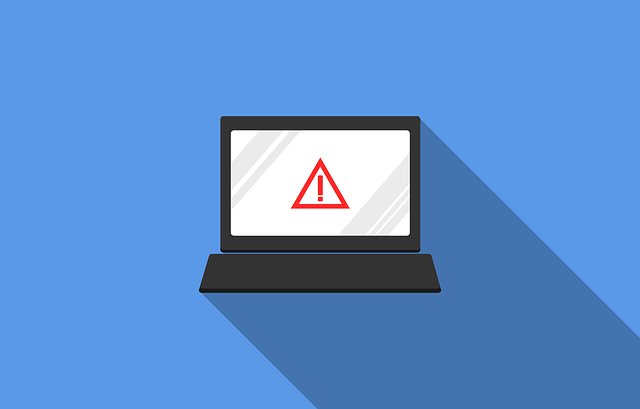
Additionally, be vigilant against phishing scams, which often try to trick you into revealing sensitive information.
Lastly, always connect to secure wifi networks to prevent unauthorized access to your data.
By following these tips, you can greatly reduce the risk of identity theft and ensure your online safety.
Understanding Identity Theft and Online Risks
In this section, you’ll learn about the definition and consequences of identity theft. Understanding what identity theft entails and the potential outcomes can help you take necessary precautions to protect yourself.
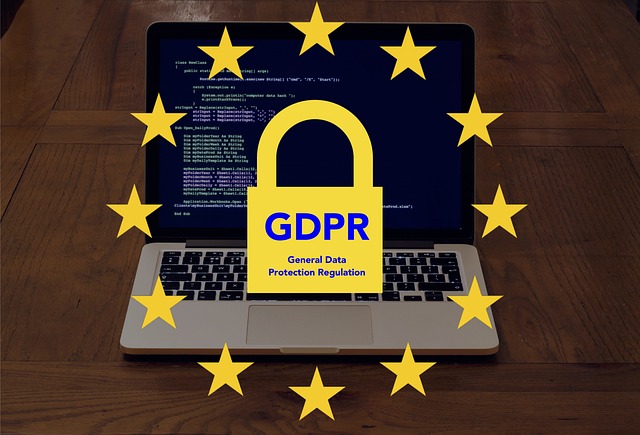
You’ll also discover the common online risks and vulnerabilities that can leave you susceptible to this crime. Being aware of these risks will enable you to make informed decisions and minimize the chances of falling victim to identity theft.
Definition and Consequences of Identity Theft
Understanding the definition and consequences of identity theft is crucial in guarding against its devastating effects. Identity theft occurs when someone steals your personal information, such as your Social Security number or credit card details, to commit fraud or other criminal activities. The consequences of identity theft can be severe and encompass various aspects of your life. Financial loss and damaged credit are common outcomes, which can take a significant amount of time and effort to resolve. Additionally, identity theft can cause emotional distress, leaving victims feeling violated and vulnerable. In some cases, victims may even face legal trouble if their stolen identity is used to commit crimes. To protect your identity online, there are several steps you can take. First and foremost, it is essential to use strong, unique passwords for all your online accounts and change them regularly. Being cautious about sharing personal information online and avoiding clicking on suspicious links or downloading unknown attachments is also crucial. Regularly monitoring your financial accounts for any unauthorized activity is an important preventive measure. Consider utilizing identity theft protection services to further safeguard your personal information. By taking these precautions, you can greatly reduce the risk of falling victim to identity theft.
Common Online Risks and Vulnerabilities
Stay vigilant and be aware of the common online risks and vulnerabilities that can compromise your personal information.
Protecting your online identity is crucial in today’s digital world.
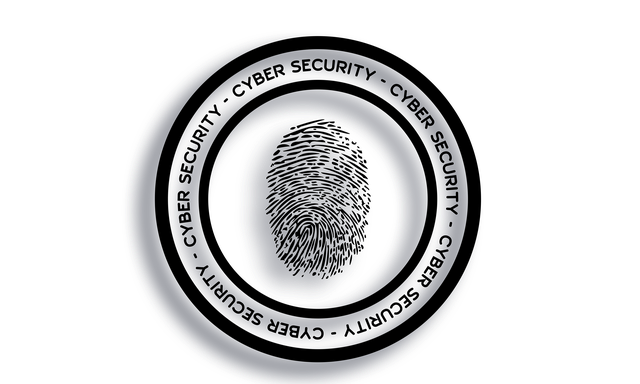
Phishing attacks and social engineering are common online risks that you should be cautious of. Be wary of suspicious emails or messages asking for personal information.
Data breaches and unauthorized access are also significant threats. Ensure that you have strong and unique passwords for all your online accounts, and enable two-factor authentication whenever possible.
Regularly update your software and keep your devices protected with antivirus software.
Avoid sharing sensitive information on public Wi-Fi networks and be cautious when downloading files or clicking on links.

By following these tips, you can protect your data and identity online and safeguard your online identity and reputation.
Strengthening Password Security
To strengthen your password security, there are three key points to consider.
First, create strong and unique passwords that are difficult for others to guess.
Second, use password managers to securely store and manage your passwords.
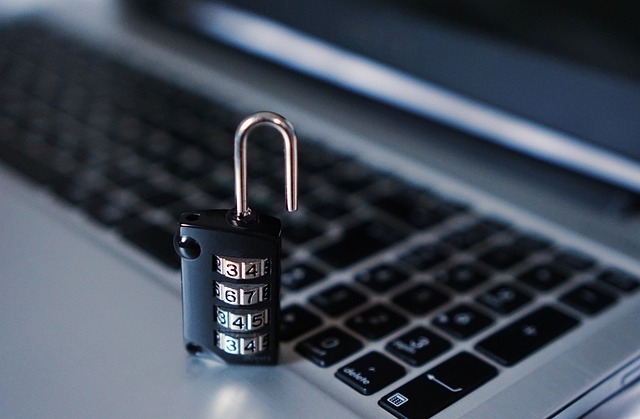
And finally, implement multi-factor authentication (MFA) to add an extra layer of protection to your accounts.
By following these practices, you can greatly enhance the security of your online identities and reduce the risk of identity theft.
Creating Strong and Unique Passwords
Creating a strong and unique password is crucial for safeguarding your online identity. To protect against identity theft, it is important to avoid commonly used passwords like ‘123456’ or ‘password.’ Instead, use a combination of uppercase and lowercase letters, numbers, and special characters. Make sure your password is at least eight characters long and avoid using easily guessed personal information. Consider using a password manager to securely store and generate complex passwords for different accounts.
Regularly updating your passwords and enabling two-factor authentication are also important steps to enhance your online security. By following these guidelines, you can strengthen your password security and protect your identity on the internet.
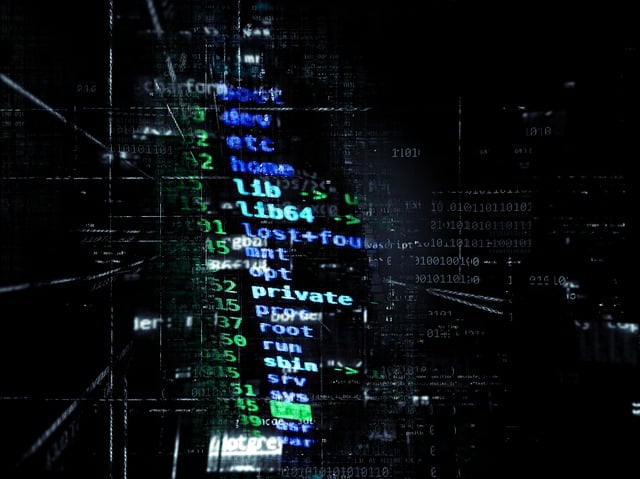
Using Password Managers
Using a password manager can help simplify the process of organizing and safeguarding your passwords. It makes it easier to generate and store complex passwords for different accounts.
Protecting your identity online and ensuring personal information security are crucial in today’s digital age. With a password manager, you can securely store all your passwords in one encrypted location. This eliminates the need to remember multiple passwords or write them down.
Password managers can also generate strong and unique passwords for you. This reduces the risk of password guessing or hacking. Additionally, many password managers offer features like auto-fill and password synchronization across devices. This makes it convenient to access your accounts while maintaining security.
By using a password manager, you can enhance your online security and protect your sensitive information from potential threats.

Implementing Multi-Factor Authentication (MFA)
Boost your online security and ensure the protection of your personal information by implementing Multi-Factor Authentication (MFA).
MFA adds an extra layer of security to your accounts, making it harder for hackers to gain unauthorized access.
With MFA, you will need to provide multiple forms of identification, such as a password and a unique code sent to your phone, to access your accounts.
This additional step significantly reduces the risk of unauthorized access, especially for online financial transactions.
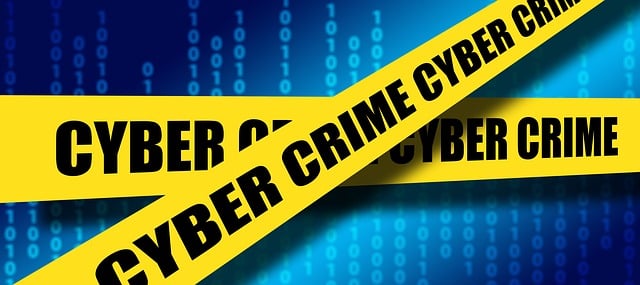
By implementing MFA, you can protect your data and identity online, preventing identity theft.
It’s a simple yet effective way to add an extra layer of security and peace of mind to your online activities.
Don’t wait any longer; start implementing MFA today to safeguard your online presence.
Safeguarding Personal Information
To safeguard your personal information, it’s crucial to limit your exposure online. Be mindful of what personal information you share on social media platforms. Avoid posting sensitive details like your full name, address, or phone number.

Take the time to review and adjust your privacy settings and permissions on various websites and apps. Ensure that only the necessary information is being shared with others.
Limiting Personal Information Exposure
Be mindful of the personal details you share online, as each piece of information you post is like a puzzle piece that can potentially reveal your entire identity to strangers.
To protect your identity online, it is crucial to limit the personal information you expose. Avoid oversharing on social media and public platforms, as this can provide cybercriminals with valuable information.
Additionally, be cautious when filling out online forms and avoid providing unnecessary personal details. Protecting your identity also means safeguarding your credit. Avoid sharing sensitive financial information, such as your credit card number or social security number, unless it is absolutely necessary.

By being cautious and mindful of what you share online, you can significantly reduce the risk of identity theft and keep your personal data safe.
Privacy Settings and Permissions
Take control of your privacy by adjusting the settings and permissions on websites and apps you use.
Privacy settings and permissions are essential for protecting your identity online and ensuring personal information security.
By properly managing these settings, you can limit the amount of information that is accessible to others.
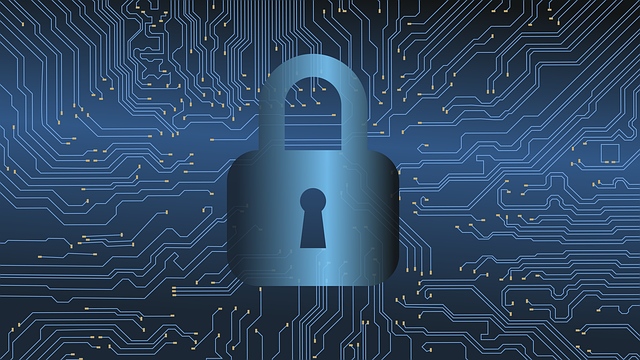
Start by reviewing the default settings and consider changing them to stricter options.
Be cautious about granting permissions to apps and websites, as they may request access to your personal data.
Only allow access to the minimum amount of information necessary for the app or website to function properly.
Regularly review and update your privacy settings to stay up-to-date with the latest security measures.
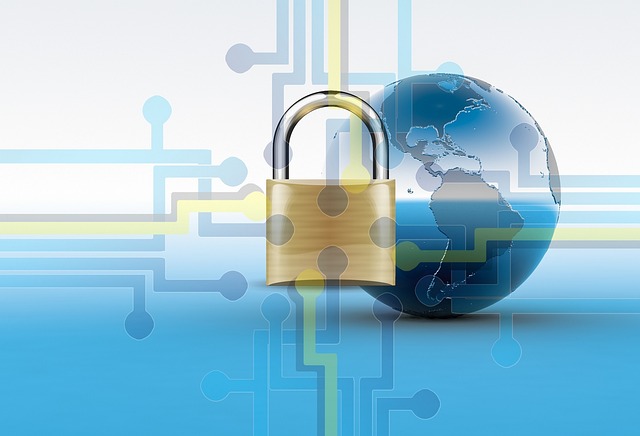
By actively managing your privacy settings and permissions, you can take proactive steps to protect yourself from identity theft online and maintain a secure online identity in cyber security.
Avoiding Phishing Scams
To protect yourself from phishing scams, it’s crucial to recognize phishing attempts. Be cautious of emails, messages, or calls that ask for personal information or financial details.
Avoid clicking on suspicious links or downloading attachments from unknown sources, as they could contain malware.
Always verify the security of a website before entering any sensitive information, such as credit card numbers or passwords.

Recognizing Phishing Attempts
When it comes to protecting your identity online, recognizing phishing attempts is crucial.
Phishing scams are a common tactic used by cybercriminals to trick you into revealing your personal information. To protect yourself, it is essential to be aware of the signs of a phishing attempt.
One key indicator is receiving an unsolicited email or message asking for personal information, such as passwords or credit card details. These messages often create a sense of urgency or fear, urging you to provide the information quickly.
Another red flag is poor grammar or spelling mistakes in the message, as legitimate organizations typically have professional communication.
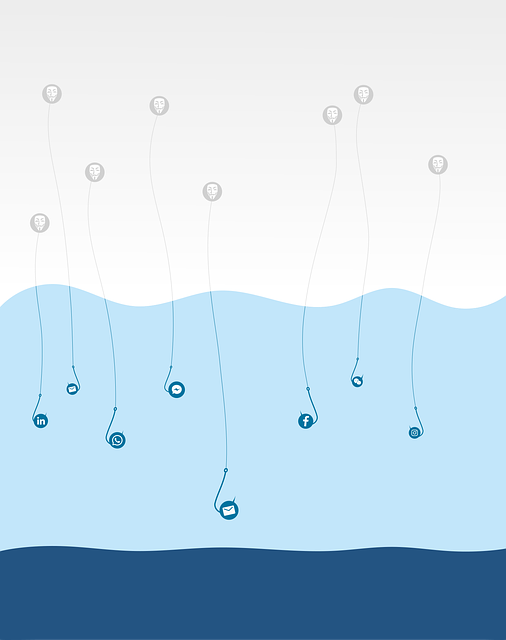
Additionally, be cautious of links or attachments in suspicious emails, as they may lead to fake websites designed to steal your information.
By staying vigilant and recognizing these phishing attempts, you can better protect your identity online.
Avoiding Clicking on Suspicious Links or Downloading Attachments
To steer clear of potential scams, it’s best to avoid clicking on suspicious links or downloading unknown attachments. This is one of the most important tips to protect your identity online.
Cybercriminals often use phishing emails or messages to trick you into clicking on malicious links or downloading harmful attachments. These links or attachments may contain malware that can infect your device and compromise your personal information.

To keep your identity safe online, always be cautious when receiving emails or messages from unknown sources. Look for suspicious signs such as misspellings, grammatical errors, or requests for personal information.
Instead of clicking on the link or downloading the attachment directly, verify the source first. Reach out to the sender through a separate channel to confirm the legitimacy of the email or message.
By avoiding clicking on suspicious links or downloading attachments, you can protect your online identity and privacy.
Verifying Website Security
One easy way to stay safe online is by making sure the websites you visit have secure SSL/TLS certificates. These certificates ensure that the connection between your browser and the website is encrypted, protecting your identity online.
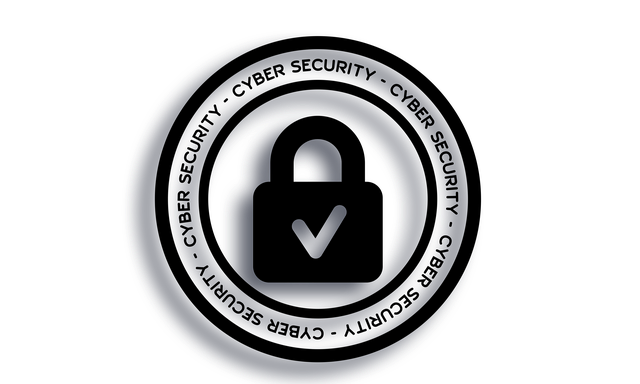
To verify website security, look for the padlock icon in the address bar and check if the URL starts with ‘https’ instead of ‘http.’ Additionally, you can click on the padlock icon to view the certificate details. This will show you the website’s authenticity and the organization it belongs to.
Be cautious of websites that have expired or invalid certificates, as they may not provide adequate protection for your personal information.
By taking these steps, you can effectively secure your identity online and minimize the risk of falling victim to online threats.
Secure Wi-Fi and Network Connections
When it comes to using Wi-Fi networks, you need to be aware of the risks of using unsecured ones. These networks can leave your personal information vulnerable to hackers and identity thieves.

To protect yourself, it’s important to use virtual private networks (VPNs) that encrypt your internet connection and keep your data secure.
Risks of Using Unsecured Wi-Fi Networks
Beware of unsecured Wi-Fi networks – they pose serious risks to your personal information security. When using public Wi-Fi, hackers can easily intercept your data, putting your online identity at risk.
To protect your identity online, it is crucial to take necessary precautions. One way to do this is by using a virtual private network (VPN). A VPN encrypts your internet traffic, making it difficult for hackers to intercept and decipher your data.
Additionally, always ensure that the websites you visit have HTTPS in the URL, as it signifies a secure connection. Avoid accessing sensitive information, such as banking or personal accounts, while connected to unsecured Wi-Fi networks.

By following these simple steps, you can protect your online identity with ease. For more tips on how to keep your identity safe, visit itscybertech.com.
Stay vigilant and take the necessary steps in protecting your internet identity.
Using Virtual Private Networks (VPNs)
Using a VPN enhances your online security by encrypting your internet traffic, keeping your personal data safe from hackers. It is crucial to protect your identity online, and using a VPN is an effective way to do so.
By encrypting your internet traffic, a VPN creates a secure tunnel between your device and the websites you visit, making it nearly impossible for anyone to intercept or access your data. This is especially important when using unsecured Wi-Fi networks, where hackers can easily intercept your information.
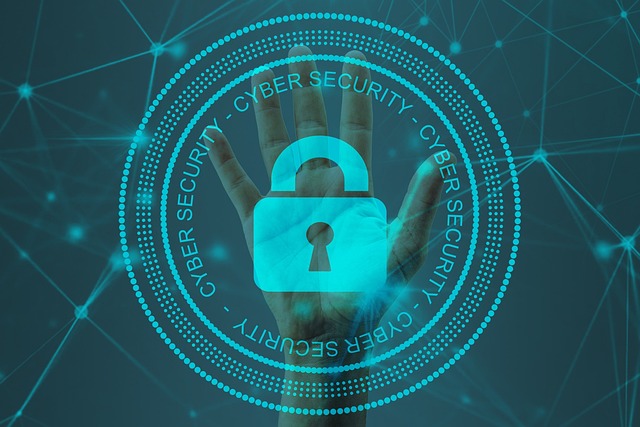
Additionally, a VPN allows you to browse the internet anonymously, masking your IP address and preventing websites from tracking your online activities.
Overall, virtual private networks (VPNs) are an essential tool for ensuring the security and privacy of your personal information online.
Protecting Personal Devices
To keep your personal devices secure, it’s important to take certain precautions. Here are some steps you can follow:
- Regularly update both your device’s software and the applications you use. By keeping your software up to date, you ensure that you have the latest security patches and bug fixes.
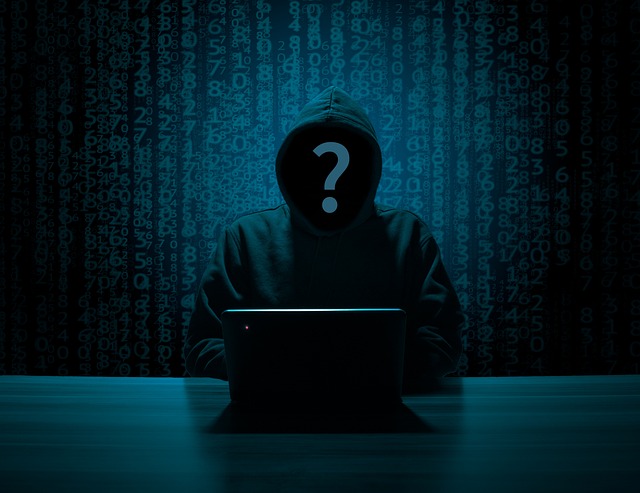
- Use antivirus and security software to protect your device from malware and other online threats.
Taking these measures will help safeguard your personal devices and keep them secure.
Keeping Devices and Software Updated
To maintain the security of your personal information online, it is crucial to keep your devices and software updated. Regularly updating them is one of the most effective ways to protect your identity and personal information online for free. By installing the latest security patches and updates, you can prevent hackers from exploiting vulnerabilities in older versions.
To make the updating process easier, enable automatic updates on your devices and software whenever possible. This way, you won’t have to worry about manually checking for updates. It is also important to exercise caution when downloading software or apps from untrusted sources. These sources may contain malware or spyware that can compromise your identity.
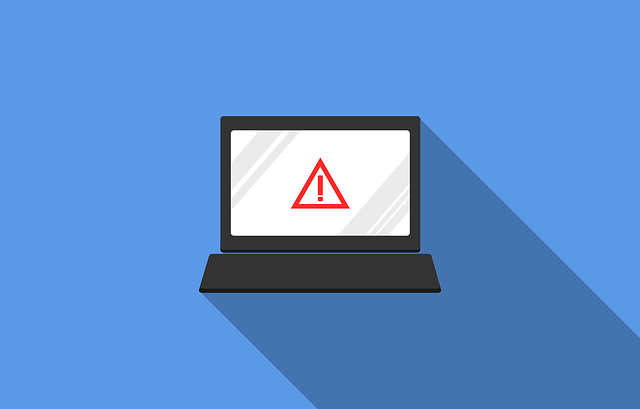
By taking proactive measures to keep your devices and software updated, you can significantly reduce the risk of identity theft and online security breaches.
Using Antivirus and Security Software
Having reliable antivirus and security software in place is crucial for safeguarding your digital world from potential threats. It is essential to protect your online identity in today’s interconnected world, considering the increasing number of cyberattacks and data breaches. Taking proactive steps is necessary to ensure the safety of your personal information. Antivirus software plays a vital role in this process by acting as a shield against various types of malware, including viruses, ransomware, and spyware that can compromise your identity.
Regularly updating and running scans with your antivirus software is important to detect and remove any malicious programs that may have infiltrated your system. It is also crucial to choose a reputable antivirus software that provides real-time protection and updates to keep up with evolving threats. By investing in reliable antivirus software, you can have peace of mind knowing that your identity is secure.
Securing Online Financial Transactions
When it comes to securing your online financial transactions, there are two key points to keep in mind.
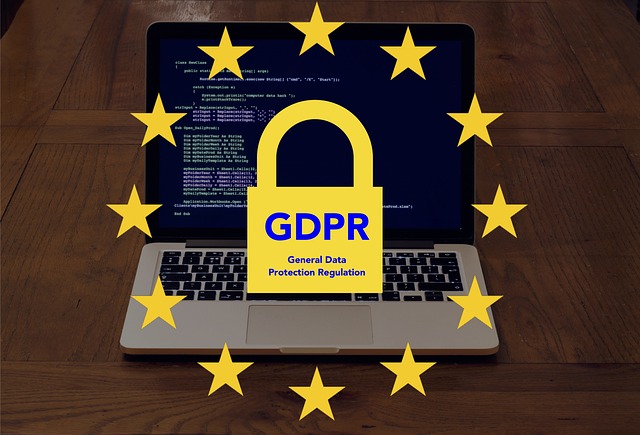
First, always use secure payment methods, such as reputable online payment platforms or credit cards with fraud protection.
Second, avoid conducting sensitive transactions, such as banking or shopping, while connected to public Wi-Fi networks, as they can be easily compromised by hackers.
By following these tips, you can help ensure the safety of your personal and financial information online.
Using Secure Payment Methods
Protect your identity and keep your personal information safe by choosing trusted payment gateways. When it comes to safeguarding your online identity, using secure payment methods is crucial.
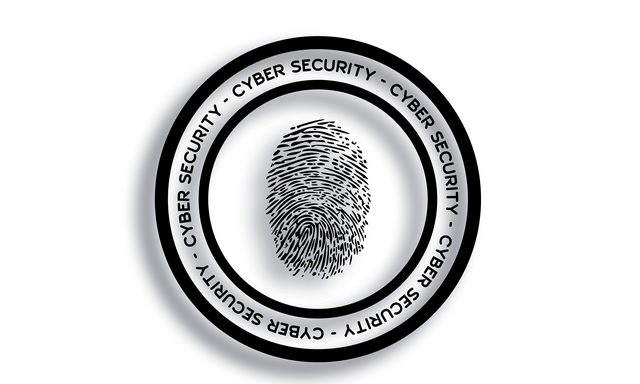
Identity theft is a real threat in today’s digital world, and using reputable payment gateways can help minimize the risk. Look for payment gateways that prioritize security and employ encryption technology to protect your personal information. These gateways should also offer additional security measures such as two-factor authentication or tokenization.
By using secure payment methods, you can ensure that your personal identity online remains protected and reduce the chances of falling victim to identity theft.
Don’t compromise on security when making online financial transactions – opt for trusted payment gateways to safeguard your personal information.
Avoiding Public Wi-Fi for Sensitive Transactions
It is important to be cautious and think twice before connecting to public Wi-Fi networks for sensitive transactions. What may seem convenient at first could potentially leave you vulnerable to unseen threats.

Avoiding public Wi-Fi is one of the top ways to keep your personal information safe when it comes to protecting your identity online. Public Wi-Fi networks are often unsecured, making it easier for hackers to intercept your data.
Instead, opt for secure networks, such as your home or office connection, or use a virtual private network (VPN) when accessing sensitive information on the go. By doing so, you can ensure that your personal and financial information remains encrypted and protected from prying eyes.
Don’t let the convenience of public Wi-Fi compromise your identity. Take the necessary steps to safeguard your information.
Regularly Monitoring Accounts and Activity
You should regularly monitor your accounts and activity by reviewing your bank and credit card statements. This will help you stay on top of any unauthorized transactions or suspicious activity.
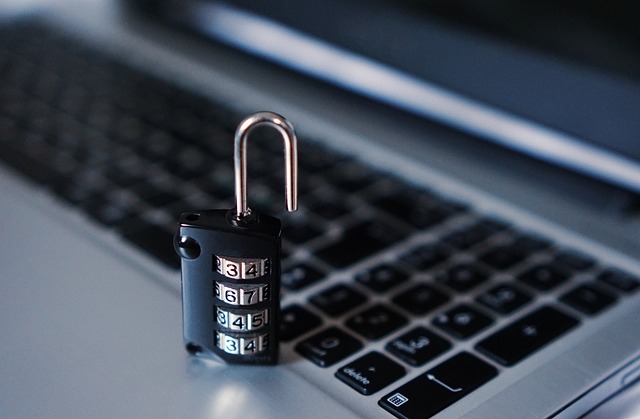
Additionally, setting up account alerts can provide you with real-time notifications of any changes or transactions made on your accounts, giving you added security and peace of mind.
Reviewing Bank and Credit Card Statements
Check out your bank and credit card statements regularly to spot any suspicious activity and keep your personal information secure. Reviewing these statements is crucial in safeguarding your online identity and protecting yourself against online identity theft.
By doing so, you can identify any unauthorized transactions or fraudulent charges, allowing you to take immediate action. Keep an eye out for unfamiliar merchants or purchases that you don’t recall making. If you notice anything suspicious, contact your bank or credit card company immediately to report the issue and request further investigation.
Additionally, consider setting up alerts or notifications for your accounts, which can notify you of any unusual activity in real-time. By regularly reviewing your bank and credit card statements, you are taking an essential step in protecting your virtual identity and ensuring the security of your personal information online.
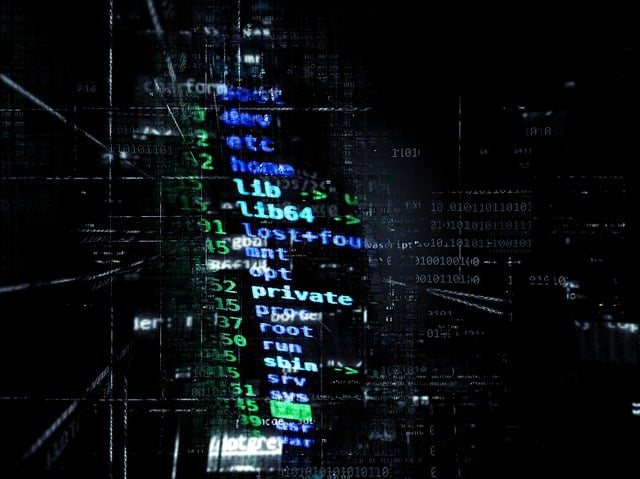
Setting Up Account Alerts
To ensure your financial security, it is important to set up account alerts. These alerts will notify you about any unusual activity or logins, allowing you to stay on top of your account’s security effortlessly. By enabling account alerts, you can take proactive measures to protect your identity online.
Account alerts provide immediate notifications if there are any suspicious activities on your bank or credit card accounts. This gives you the opportunity to address any potential security breaches promptly. With the increasing number of cyber threats, it is essential to stay vigilant and be aware of what you can do to protect your identity on the internet.
Setting up account alerts adds an additional layer of security, helping you detect unauthorized access to your personal information. By staying informed and taking necessary actions, you can effectively safeguard your personal identity online.
Educating Family Members and Children
When it comes to promoting online safety awareness, it’s important to educate your family members and children. Teach them about the potential risks and safe practices.

- Teach them about the importance of protecting personal information.
- Teach them about avoiding suspicious links and downloads.
- Teach them about practicing good online etiquette.
By instilling these safe practices from a young age, you’re helping to protect their identities and ensure their online experiences are positive and secure.
Promoting Online Safety Awareness
Promoting online safety awareness is crucial in protecting ourselves and others from identity theft and cyber attacks. To effectively raise awareness, it is important to have open conversations about the risks of sharing personal information online. Encourage the creation of strong passwords and the use of two-factor authentication. Educate others about the dangers of clicking on suspicious links or downloading unknown attachments. Remind them to regularly update their devices and software for the latest security patches. Emphasize the need to be cautious when sharing personal information on social media platforms and adjusting privacy settings accordingly. By actively promoting online safety awareness, we can create a safer digital environment for everyone.
Teaching Safe Online Practices to Children
Teaching children safe online practices is crucial in ensuring their digital well-being and equipping them with the necessary skills to navigate the internet securely.
Start by explaining the potential risks of sharing personal information online and why it is important to keep it private. Encourage them to think twice before sharing any personal details, such as their full name, address, or school.
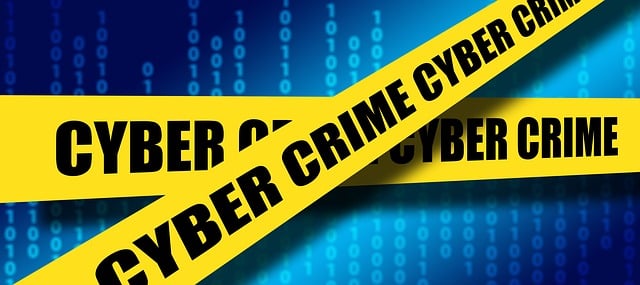
Teach them to create strong, unique passwords for their online accounts and explain the importance of not sharing passwords with anyone, even their friends.
Additionally, educate them about the dangers of clicking on suspicious links or downloading unknown files. Encourage them to only download content from trusted sources.
Lastly, emphasize the importance of open communication and encourage them to approach a trusted adult if they encounter any concerning situations online.
Reporting Suspicious Activity and Identity Theft
If you ever find yourself in the unfortunate situation of experiencing identity theft, it’s crucial that you take immediate action to protect yourself.

Firstly, make sure to report the suspicious activity to the relevant authorities and financial institutions involved. By doing so, you can help prevent further damage and potentially catch the perpetrator.
Reporting to Relevant Authorities and Financial Institutions
To protect your personal information, it’s important that you report any suspicious activity to the relevant authorities and your financial institutions.
If you notice any unusual transactions or unauthorized access to your accounts, immediately contact your local law enforcement agency and file a report. They will investigate the matter and take appropriate action to ensure your safety.
Additionally, inform your financial institutions, such as banks or credit card companies, about any suspicious activity. They have dedicated teams to handle fraud cases and can freeze your accounts or issue new cards if necessary.

Reporting promptly not only helps protect your identity but also assists in preventing further damage. Remember, staying vigilant and taking quick action are vital in safeguarding your personal information.
Taking Prompt Action in Case of Identity Theft
Taking quick action is crucial if you suspect that your identity has been stolen. The first step is to contact your financial institutions and credit reporting agencies to report the theft. They can freeze your accounts and investigate any fraudulent activity.
Next, file a report with your local police department and provide them with any evidence of the theft. This will help establish a record of the crime and may aid in the investigation.
Additionally, notify the Federal Trade Commission (FTC) and create an Identity Theft Report with them. This report can assist in disputing fraudulent charges and repairing any damage to your credit.
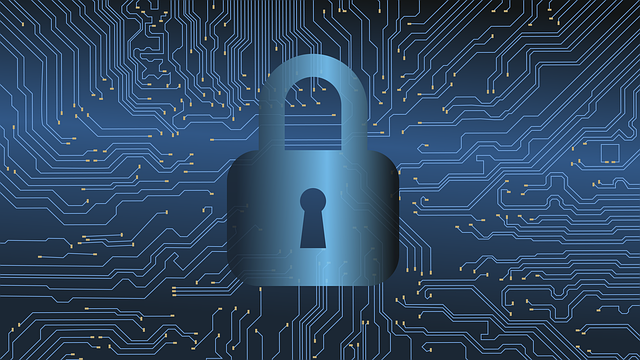
Finally, monitor your accounts regularly for any suspicious activity and consider placing a fraud alert or credit freeze on your credit reports. Taking prompt action can help minimize the damage caused by identity theft and protect your financial well-being.
Recap
It is important to remember that safeguarding your personal information requires a constant effort to stay ahead of potential threats in the digital landscape. Your online identity is valuable and needs proactive protection.
Here are some key tips to keep in mind:
- Always be vigilant in monitoring your accounts and promptly report any suspicious activity.
- Use strong and unique passwords for each of your online accounts. Consider using a password manager to securely store them.
- Enable multi-factor authentication whenever possible to add an extra layer of security.
- Regularly update your devices and applications to ensure you have the latest security patches.
- Be cautious of phishing attempts and never share sensitive information through unsecured channels.
By following these essential tips, you can significantly reduce the risk of identity theft and protect your personal information online.
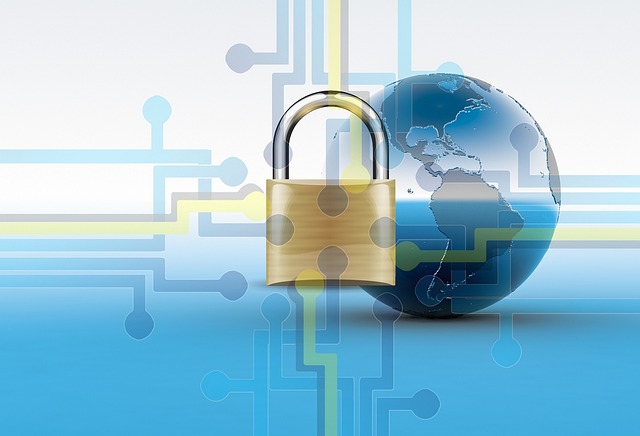
Frequently Asked Questions
What are some common signs that indicate my identity may have been stolen?
If your identity has been stolen, you may notice unauthorized transactions on your bank statements, strange accounts or inquiries on your credit report, receiving bills for services you didn’t use, or calls from debt collectors about debts you don’t owe.
Are there any specific security measures I should take when using public Wi-Fi networks?
When using public Wi-Fi networks, be cautious. Hackers can intercept your data and steal personal information. Protect yourself by using a virtual private network (VPN) and avoiding sensitive activities like online banking.
How can I protect my personal information when shopping online?
Use secure websites with an “https://” URL, create strong passwords and use a different one for each site, and be cautious of phishing emails or suspicious links. Keep your devices and antivirus software up to date.
Is it necessary to change my passwords regularly? If so, how often should I do it?
Regularly changing your passwords is crucial for your online security. By doing so, you actively safeguard your personal information from potential hackers. Remember, an ounce of prevention is worth a pound of cure. Stay proactive!

What steps should I take if I suspect that my identity has been stolen?
If you suspect your identity has been stolen, act quickly. Contact your bank and credit card companies, file a report with the police, and monitor your accounts for any suspicious activity.
Conclusion
In conclusion, you’ve taken important steps to protect your identity online. By strengthening password security, safeguarding personal information, and avoiding phishing scams, you’ve built a solid defense against online risks.
Regularly monitoring your accounts and educating your family members and children only adds to your protection. Remember, coincidentally, staying vigilant and reporting any suspicious activity or identity theft can save you from potential harm.
So keep up the good work and stay one step ahead in the online world.
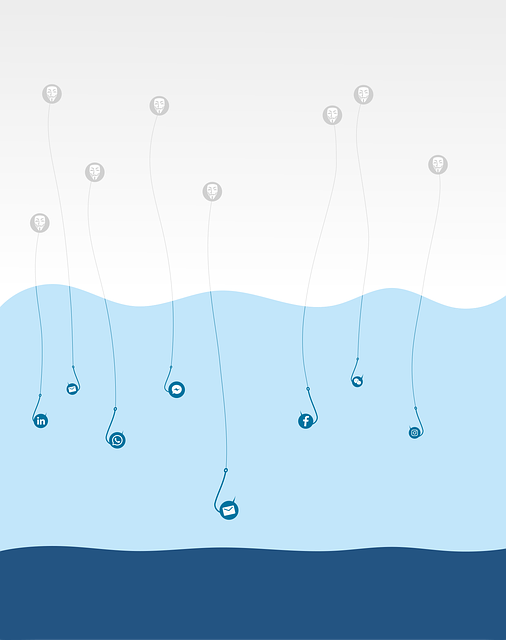
You might also like to read on these cybersecurity articles on Get Hitch
Safe Online Shopping: How to Securely Purchase Goods and Services
Ransomware Attacks: What They Are and How to Protect Yourself





